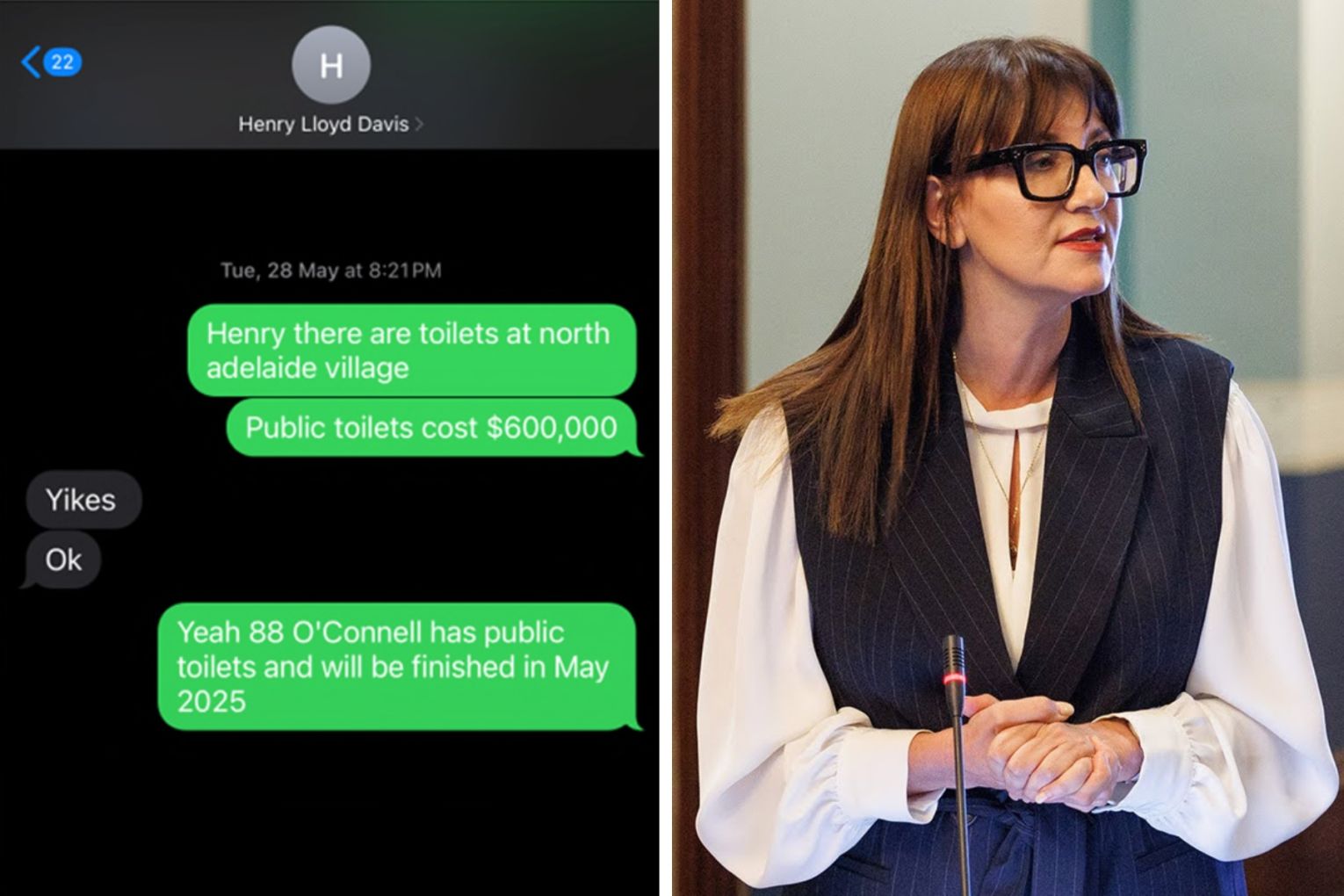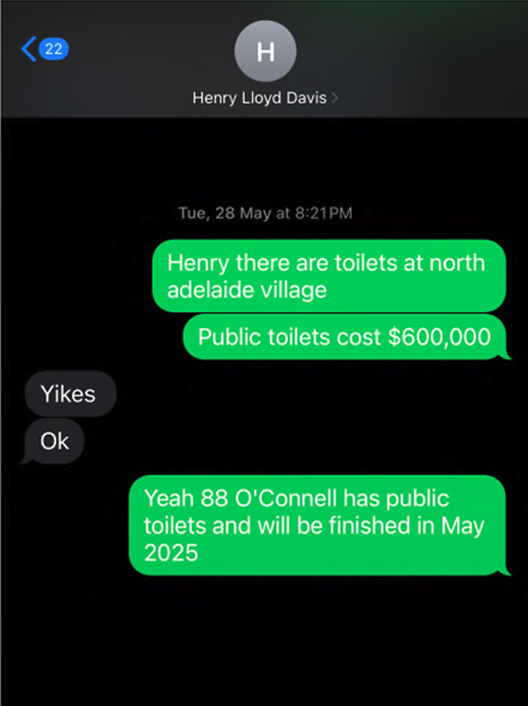Ombudsman forces public apology over text messages breach
An Adelaide town hall drama continues to unfold over Tony Tomatoes, a new public toilet and thousands of dollars spent on legal costs. See one councillor in the midst of the controversy issue a public apology.

Adelaide City councillor Mary Couros formally apologised for sending text messages that were ruled a breach of the Local Government Act at last night’s Adelaide City Council meeting.
“I rise to issue a public apology for my actions during a meeting of council held on the 28th of May 2024,” she said.
“I apologise for my actions to the council and to the public, and I will leave this room as this matter is going to be discussed.”
SA Ombudsman Emily Strickland found Couros tried to influence an agenda item about street upgrades that she had a conflict of interest in by texting fellow councillor Henry Davis during the council meeting.
Davis was not accused of any wrongdoing.
Watch the apology and discussion from 1:28:30 to 1:33:19:
In 2024, a separate code of conduct review into the same text sent by Davis prompted him to file judicial review proceedings against the council in the Supreme Court.
This was dismissed by the court in March 2025, but the legal exercise was later revealed to cost the Adelaide City Council $39,113.
You might like
The text exchange that started the drama occurred on May 28, 2024, following a council decision about possible street upgrades, including public toilet facilities in North Adelaide’s Lombard Street.
Couros declared a material conflict of interest because her partner was a shareholder in North Adelaide restaurant Tony Tomatoes, adjacent to Lombard Street.
The Ombudsman found that Couros had a general conflict, not a material one and that “the council’s decision on the specific motion in question would not in itself result in any benefit or loss to Cr Couros or to Tony Tomatoes”.
But the Ombudsman found Couros “failed to act honestly” and committed an “intentional and serious breach of the integrity provisions of the Local Government Act”.
“In my opinion, by sending text messages to involve herself in and seek to influence the discussion through Cr Davis, Cr Couros did not act with the degree of honesty required,” Strickland said in her report.
Couros was also required to attend training “relevant to the integrity provisions with a particular focus on conflicts of interest” as recommended by the Ombudsman.
Deputy Lord Mayor Keiran Snape thanked Couros for her apology, noting “the sorrow of the situation” and said he hoped the council “won’t be in this situation again”.
Couros said in a statement that she informed Cr Davis “by text where the closest toilets are because council-built toilets are very expensive and I thought that would be useful and unbiased fact”.
“I didn’t consider it wrongful at the time, and I understand and accept the ombudsman’s position,” she said.
The phone ban

The Adelaide City Council’s meeting procedures were updated in 2023 to prevent councillors from sending texts during meetings.
Stay informed, daily
Councillor Phillip Martin said the Ombudsman’s findings “underscores the appropriateness” of the phone ban.
“This matter more than any other demonstrates that it is vital that mobile phones are not used by members to exchange texts or to receive calls; if that must occur, it is important people leave the chamber,” he said.
In response, Davis said “every single councillor here uses their phone every single meeting”.
He went on to exclude councillors Carmel Noon and Mark Siebentritt from the remark but claimed “the rest of you are texting furiously”.
This came after the council voted against passing its behavioural management policy earlier in the night, instead deferring it for further workshopping.
The behavioural management policy outlines the process for making and handling complaints about councillor behaviour and how disputes are resolved.
The Supreme Court case

Davis filed judicial review proceedings against the council and four others in 2024 after a complaint made against him for sending his texts to Couros was escalated to an investigation.
The matter was separate from Couros’ investigation by the Ombudsman and did not involve Couros.
Davis argued then that he was subject to procedural unfairness and that the decision to investigate him over a text was “vexatious, frivolous and trivial”.
The court dismissed Davis’ application for judicial review in March.
The Adelaide City Council utilised the Local Government Association’s Mutual Liability Scheme during the proceedings, a scheme which includes legal services, public liability and professional indemnity insurances.
It is understood the scheme would seek to recover costs, and council CEO Michael Sedgeman said in July that was “a matter between the Mutual Liability Scheme’s lawyers and councillor Davis”.
The proceedings were against five respondents: the City of Adelaide, its CEO Michael Sedgman, Lord Mayor Dr Jane Lomax-Smith, Norman Waterhouse lawyer Felice D’Agostino and an unknown person.
After starting proceedings, Davis dropped his complaint against D’Agostino.








